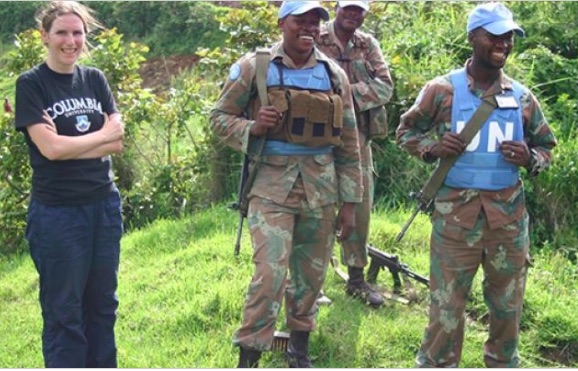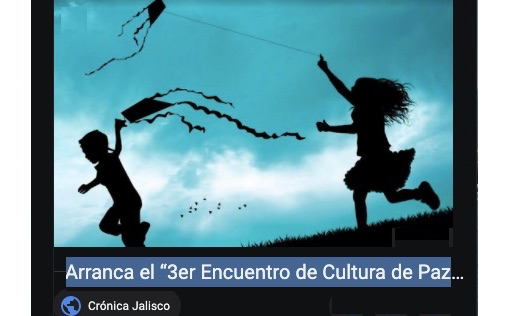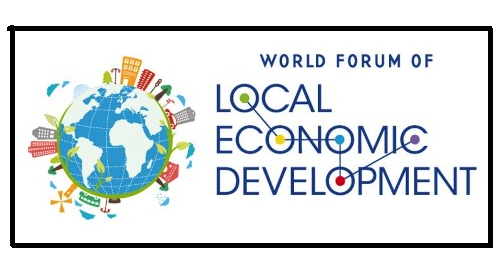EDUCATION FOR PEACE .
This interview, conducted by Jessica Alexander, was originally published by The New Humanitarian, a news agency specialised in reporting humanitarian crises. It is reprinted here by permission.]
As the number of displaced people around the world reached 80 million people due to conflict and persecution last year, Filippo Grandi, the UN’s high commissioner for refugees, acknowledged: “The international community is failing to safeguard peace.”
Séverine Autesserre addresses these failures and offers a different, more hopeful outlook on ending conflict in her new book, The Frontlines of Peace, released today [May 13].
 Severine Autesserre with UN peacekeepers
Severine Autesserre with UN peacekeepersDrawing from research in 12 conflict zones around the world – from the Democratic Republic of Congo, to Afghanistan, to Colombia – Autesserre details what’s wrong with what she refers to as “Peace, Inc.” This traditional approach to ending wars, she explains, relies on foreign-led peacebuilders who lack an in-depth understanding of the societies and cultures in which they work and the causes of violence.
Lasting peace, she explains, isn’t imported by externals, or driven from elites sitting in capitals. Instead, it relies on the activism of ordinary citizens. It’s time, Autesserre says, for those inside Peace, Inc. to change their relationships with local insiders, shed their unhelpful assumptions, and recognise the potential and power of grassroots initiatives to end conflict.
Autesserre sat down with The New Humanitarian to talk about her new book and the ways in which international peacebuilders can do better. She describes places like Idjwi, an island in Lake Kivu in Congo that has become a peaceful sanctuary amidst a decades-long conflict. She talks about the way a mother knows that peace has come because her child starts speaking in the future tense.
And she explains why some peacebuilding efforts fail, yet others flourish.
This interview has been edited for length and clarity.
The New Humanitarian: Your new book is full of examples of successful local level peace initiatives. Why did you feel the need to write this book? And why are its messages especially relevant today?
Séverine Autesserre: I didn’t set out to write a book about local peace initiatives; I wanted to write a book about how to end violence. One and a half billion people live under the threat of violence in more than 50 countries around the globe. Even countries like France and the United States are facing an increasing number of hate crimes, gang fighting, terror attacks. It’s critical that we do something.
When I started working on The Frontlines of Peace, I had already written two books and dozens of articles on why and how we fail to stop war and end violence. So I wanted to look at success – at what actually works to build peace during and after mass violence.
And it’s because I looked more at the success of peacebuilding that I ended up writing about grassroots efforts, because what works is usually innovative grassroots initiatives that are sometimes supported by foreigners, and they also often use methods that are shunned by the international elite.
TNH: Which kinds of methods are shunned? Can you give an example?
Autesserre: Take Idjwi, an island in the middle of Lake Kivu near the border between the Democratic Republic of Congo and Rwanda. The DRC is home to one of the deadliest conflicts since World War II, but the island of Idjwi itself is a haven of peace. When you look at how Idjwi has maintained peace for the past 20 years, it’s not the usual suspects – the state or the police – who have managed to control tensions; it’s not foreign peacebuilders or peacekeeping missions or international organisations; it’s members of the community themselves.
When I talk with international peacebuilders and peacekeepers, they tell me that ordinary citizens do not have the skills to build peace; they cannot help their situation. And I show that they do.
Residents of Idjwi have what they call a culture of peace – they resolve conflicts through grassroots structures, community meetings, and many other local initiatives that international peacebuilders often dismiss as being completely irrelevant.
People in Idjwi draw on a very strong belief that helps deter violence by both insiders and outsiders. For instance, you have blood pacts – traditional promises between two parties who agree never to hurt each other. You also have beliefs around witchcraft:
There is a myth that Idjwi is the home of the most powerful sorcerers – that makes Idjwi this kind of place where Congolese in surrounding provinces are afraid to attack because they worry that the sourcerers will attack them back.
There are many different methods, beliefs. They vary depending on the context, but they are all very specific, local, and rooted in society and cultures.
TNH: If these local initiatives may have a better chance, and foreign intervention may mess things up or make the situation worse, how do you distinguish which efforts are worthy?
Autesserre: I don’t say that local initiatives have a better chance, or that foreign intervention messes things up. What I say is that certain local initiatives have a better chance, and certain foreign intervention efforts mess things up; just like there are certain local initiatives that are doomed to fail, and certain foreign intervention efforts that actually make a positive difference – both at the highest level and on the ground.
In the book, I detail foreign peacebuilders who come from all over the world – working for different organisations in very different countries. They are what I call model interveners, who do actually make a difference at the highest level and on the ground.
There are a few characteristics which they have in common. They don’t believe that they, as outsiders, know better, or that they have the right theories, skills, and expertise, or that they bring the ideal solutions to people’s problems. Instead, they respect local residents; they listen to them. They are open minded; they understand that other people have a different understanding of peace, democracy, and development.
They know the local context well; they speak at least some of the local languages; and they have extensive local networks. They are in it for the long run; they stay on-site for years, sometimes decades. They don’t put themselves at the forefront of peace efforts. They don’t put their logos everywhere. Instead, they maintain a low profile and they turn the spotlight on the achievements of their local partners: elites, local staff, ordinary people.
They are flexible. They keep adapting their strategies based on the results and feedback that they get and the way the situation evolves. They understand that sometimes there are hard choices, because all these things may not fit together so we may have to choose between worthy goals. The best interveners understand that they should not be the ones to make these choices: The people who have to live with the consequences of the decision should be the ones making it.
TNH: So, it’s not a dichotomy of only local; it’s about having a mix?
Autesserre: Yes, we need top-down and bottom-up. We need both insiders and outsiders. We don’t want to replace top-down with bottom-up or international with local grassroots peacebuilding – we need both. But the reason why I insist on more grassroots bottom-up efforts is because currently most of the international resources and attention is on top-down efforts working at the national and international levels. We need international involvement, but as I show in the book, we also need to change the way we work at the highest level. We need to follow the characteristics of the model peacebuilders which I’ve outlined.
(Continued in right column)
What are the most important books about the culture of peace?
(Continued from left column)
TNH: How do you define success in peace efforts?
Autesserre: When I was doing the research for the book, I didn’t come in with my own definition of success. I asked people: ‘Do you have peace in your neighborhood, your village, your district or country, and do you think this or that initiative has been successful and, if so, why?’
“It’s things like a mother in Congo telling me that my child is now speaking in the future tense; a woman in Colombia saying I know that there is peace in my village because I can sleep in my pajamas.”
Peace and success which I document in the book are based on what peace practitioners and people on the ground feel and experience. It can take a lot of different forms, some of which I would never have thought about. It’s not love and harmony between world leaders or country leaders. It’s things like a mother in Congo telling me that my child is now speaking in the future tense; a woman in Colombia saying I know that there is peace in my village because I can sleep in my pajamas. Before, she always thought there would be fighting during the night and she would have to get dressed and run out, so it was better to go to sleep fully dressed. To her, peace was sleeping in her pajamas. In Colombia, many people mention how they sleep as an indication of peacefulness – with the windows open, the doors unlocked. There are so many other examples: You can use the toilet in your garden when you don’t have toilets in your house at night; you don’t have to use a chamber pot. These are definitions of peace and ways that people perceive peace and success that I would have never thought about.
TNH: We are hearing similar calls today within the humanitarian sector to take a look in the mirror, to decolonise the humanitarian system and make aid more localised.
Autesserre: We are all due for a good look in the mirror – peacebuilding, development, humanitarians. I got a message from a friend, a leader of a big humanitarian organisation who said she’s given the book to her board and to her operations director, because we still use too much of “Aid, Inc.” I receive a lot of messages like that, by leaders or people lower down in the chain saying that they are using the book to help advocate for the ideals that they believe in and that I believe in.
The book is hopefully helping not by showing what we do wrong, but that we can approach peacebuilding and aid differently, and it’s actually effective and possible within all kinds of organisations, countries, and cultures.
TNH: TNH has a new coverage series exploring peacebuilding – often at the community level – and some of the reports show the power of locally driven approaches. But they also seem vulnerable to political dynamics beyond the community’s control, at the regional and national levels. How do you propose we address that?
Autesserre: A really big issue with our standard approach to peace is that many conflicts revolve around political, social, economic issues that are distinctively local – at the level of individuals, families, and the community. So our common approach [to peacebuilding], which is focused on governments and elites in capital cities, isn’t enough.
I realised this in one of my first visits to Congo in 2003. I met a woman my age, her name was Isabelle. Local militia had attacked her village. They had killed many men, raped many women, looted everything, and tried to kidnap her. Her husband defended Isabelle and said, ‘no, take me’. He went with the militia and Isabelle never saw him again.
Isabelle told me that the rebels attacked her village not because of the national and international tensions that everyone is talking about, meaning the war between Congo and Rwanda. It was because the rebels wanted to take the land that the villagers needed to survive. I remember her story all these years because it’s about the awful consequences of local conflicts that foreign peacebuilders and peacekeepers and international organisations so often ignore.
“What I’ve seen when investigating conflicts around the world, is that ordinary citizens and grassroots leaders have a lot more power, skills, and ways to resolve their own problems than we usually believe.”
Locally driven peace approaches are also about building on insiders: people who lead the conflict. Of course, local leaders, ordinary citizens, are not by definition better, more peaceful, or less corrupt than national and international elites. But to me, they are better placed to address the local context, the grassroots issues, because only they know the ins and outs of their specific situation.
What I’ve seen when investigating conflicts around the world, is that ordinary citizens and grassroots leaders have a lot more power, skills, and ways to resolve their own problems than we usually believe. In every single conflict that I’ve researched, in every country, I’ve found examples of ordinary citizens and grassroots activists who use their personal connections to convince the leaders of surrounding armed groups to come and negotiate. What is fascinating is how personal peacebuilding actually is. It is fathers, mothers, uncles, cousins, brothers, sisters reaching out to family members who are fighting. Teachers, who go to meet their former students, or village leaders within their own community, telling them they had to stop fighting.
Take Somalia, which is extremely violent, has terror attacks, and violence every week, versus Somaliland, an autonomous region in the north of Somalia that has experienced very little violence for the past 20 years, very little terrorism, has a well functioning state, decent public services, and even some kind of functioning democracy. The key difference to me is that Somaliland benefited from sustained grassroots peacebuilding initiatives that were led by insiders, by Somali leaders themselves. If you look at the rest of Somalia, you see the usual top-down, outsider-led Peace, Inc. approach used. To me, Somaliland is important to keep in mind because it shows that, yes, there are places where the local peace can be jeopardised by an armed group or the government, but Somaliland shows you there are ways to make bottom-up peace very robust and sustainable.
TNH: When you look at today’s violence in Tigray: a cross-border conflict and a civil war – surely a place where you would need foreign involvement – what advice would you have for leaders at this stage in finding peace?
Autesserre: You should ask people in Tigray, not me. We need to ask and not just jump in no matter what. Listen and respect the wishes of the people you’ve been talking to before jumping in.
TNH: Local power dynamics can exclude the voices of some – like women in a place like Afghanistan. How can that be addressed?
Autesserre: You have the same problem with national and international dynamics. The fact that local power dynamics exclude the voices of women is not specific to local dynamics. It’s something that happens with all kinds of peace agreements and peace processes. When you look at the representation of women in the current Afghan peace talks – and virtually all other international and national peace talks for that matter – it’s highly problematic.
Representation of women is very low. And it’s not only women – there are also a lot of minority communities that are excluded from these processes.
“When you ask me, how do we address power dynamics which cut out the voice of some, you have to ask people who are excluded – what do they want?”
One of the characteristics of the model peacebuilders that I talk about is that sometimes there are hard choices. Sometimes we have to choose between worthy goals – for instance, between peace and democracy or peace and justice. If you take peace and democracy, there has been a lot of research showing that elections organised right after the end of the conflict often fuel violence rather than promote peace. So you have tension between peace and democracy.
It’s the people who have to live with the consequences of the decision who should be the ones making it. When you ask me, how do we address power dynamics which cut out the voice of some, you have to ask people who are excluded – what do they want? Ask women in Afghanistan what they want us to prioritise.
TNH: Syria talks on a possible new constitution seem stalled before they got started. Is there a point at which the UN should throw its hands up and recognise when talks aren’t going anywhere?
Autesserre: If you’re asking me when should we stop trying to build peace, my answer is never. When should we stop using what I call the Peace, Inc. approach and consider an alternative way to build peace? Well, my answer is right now.

Source of this article















